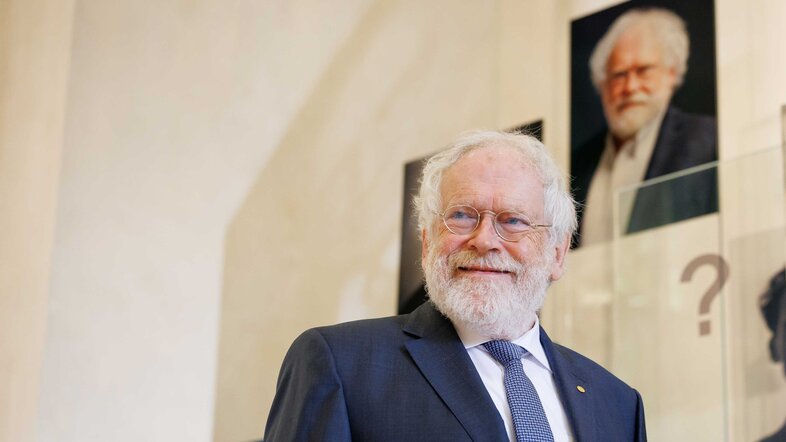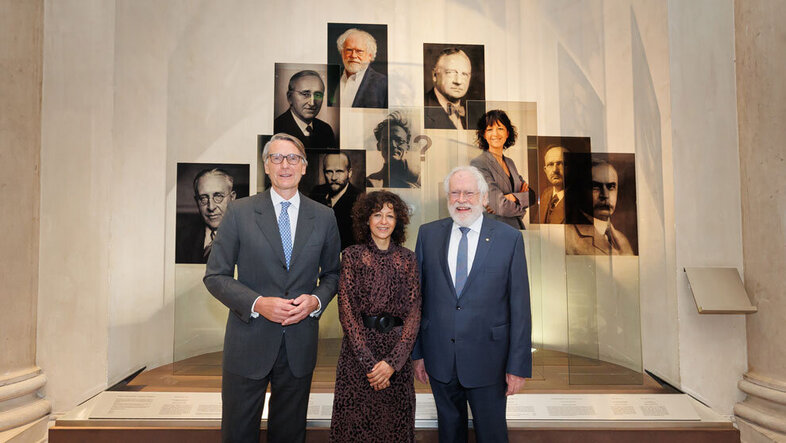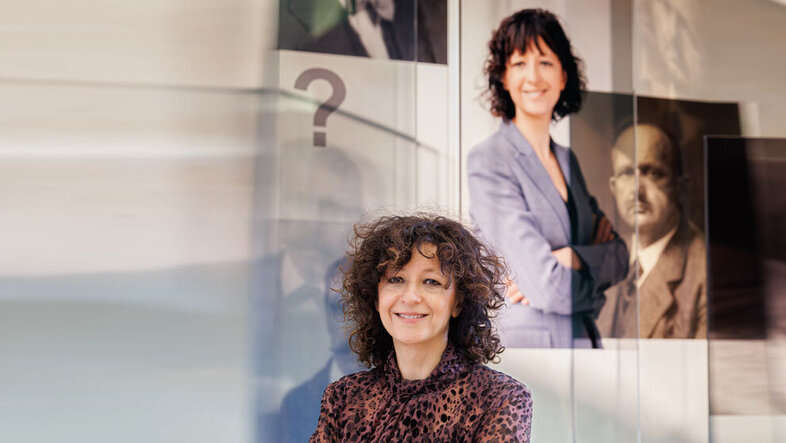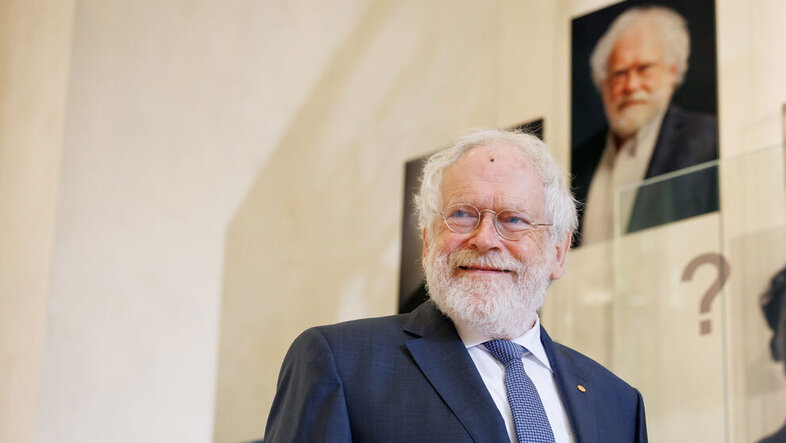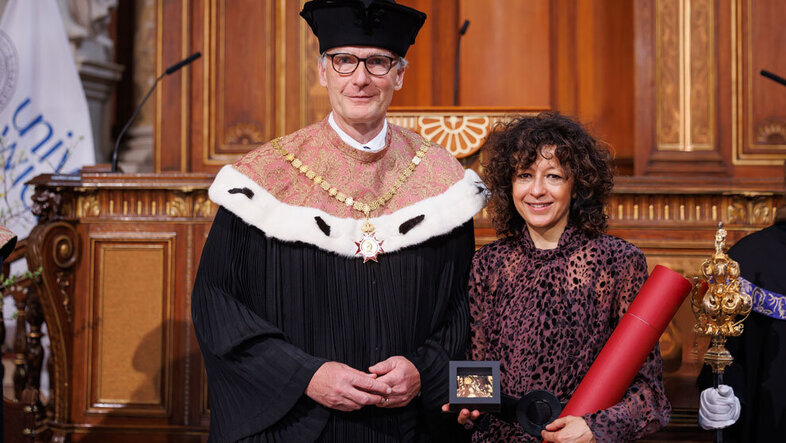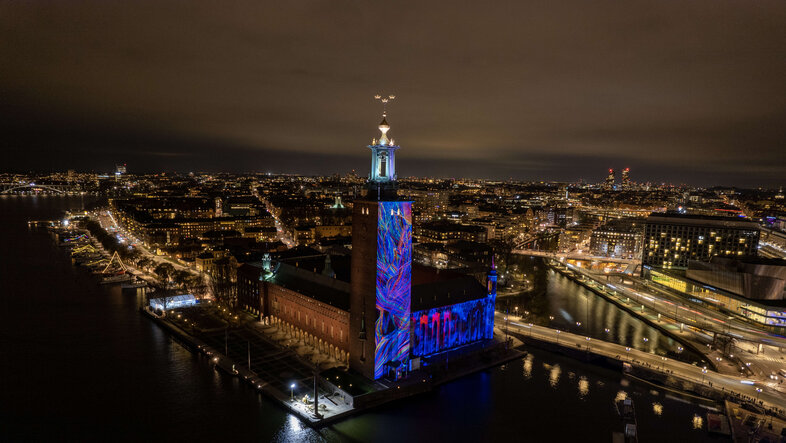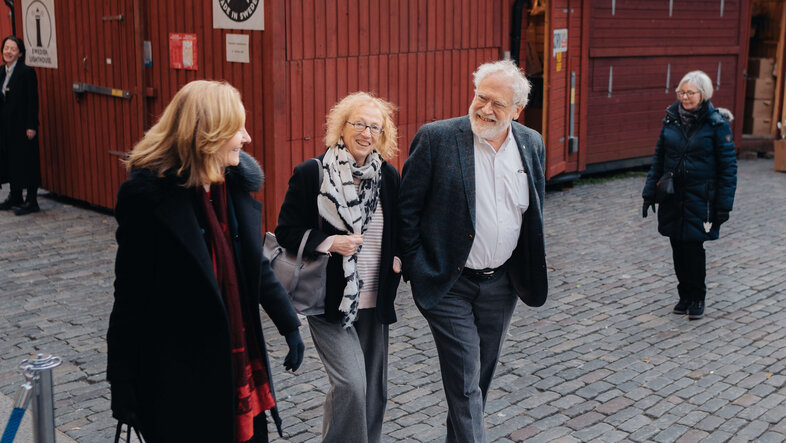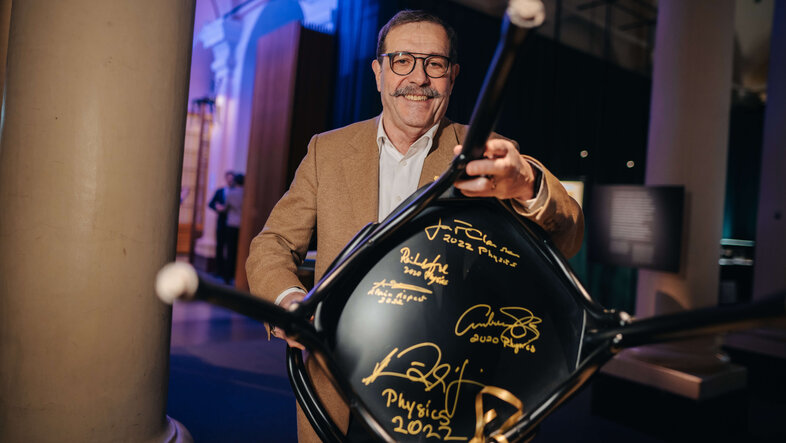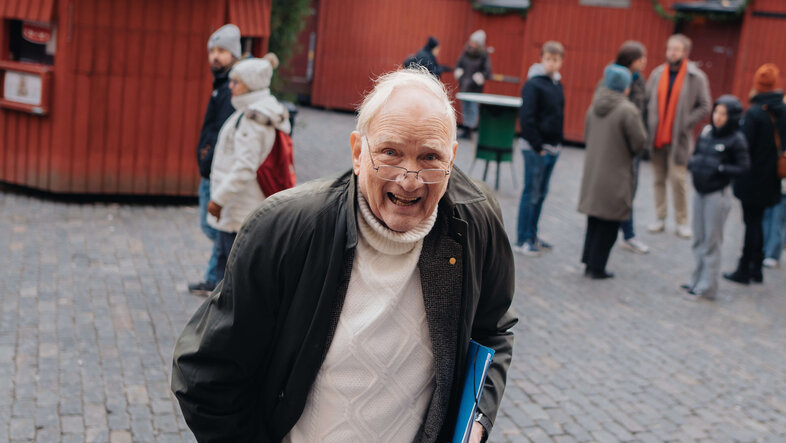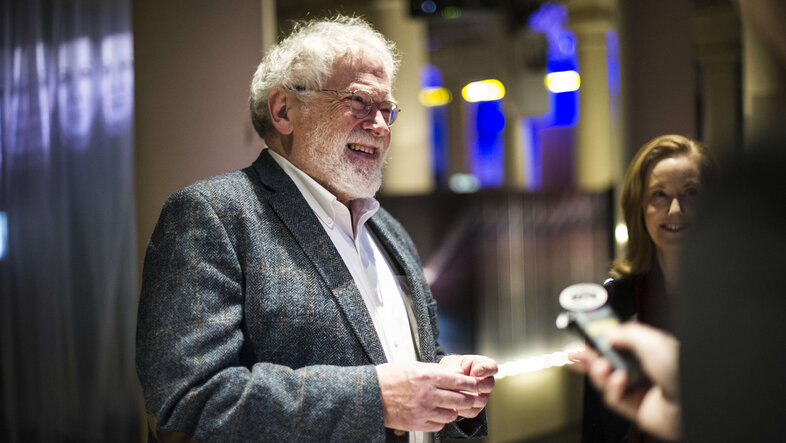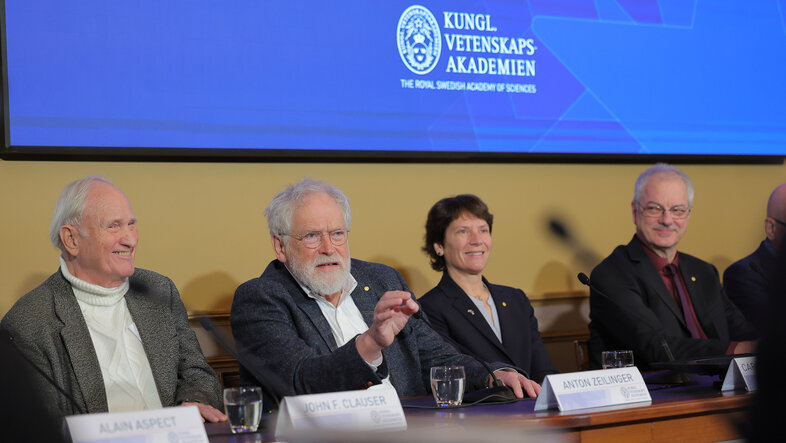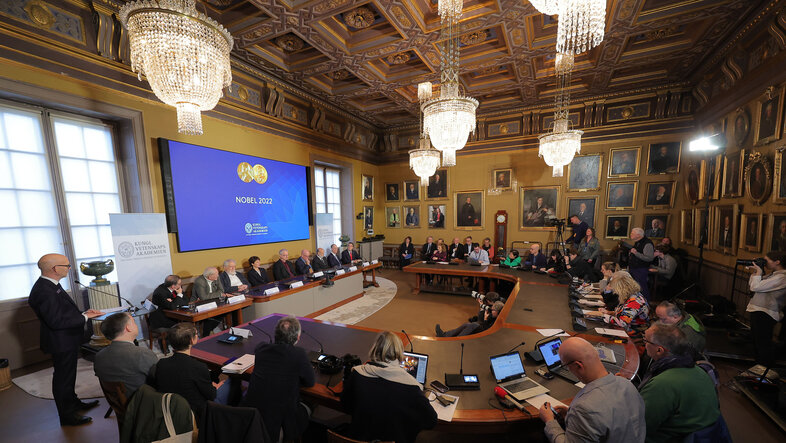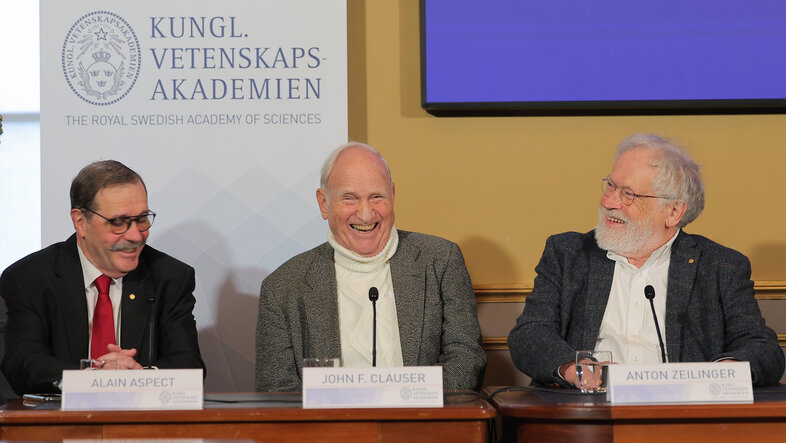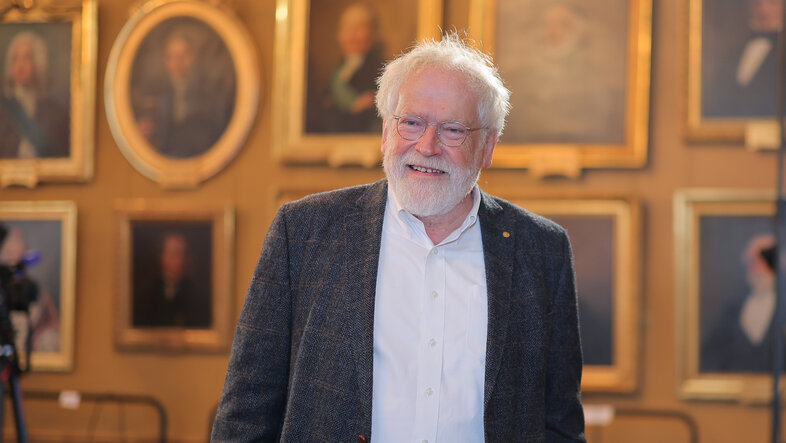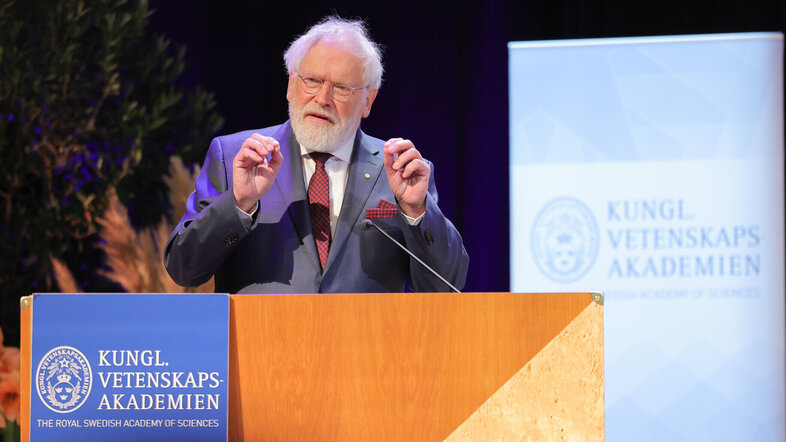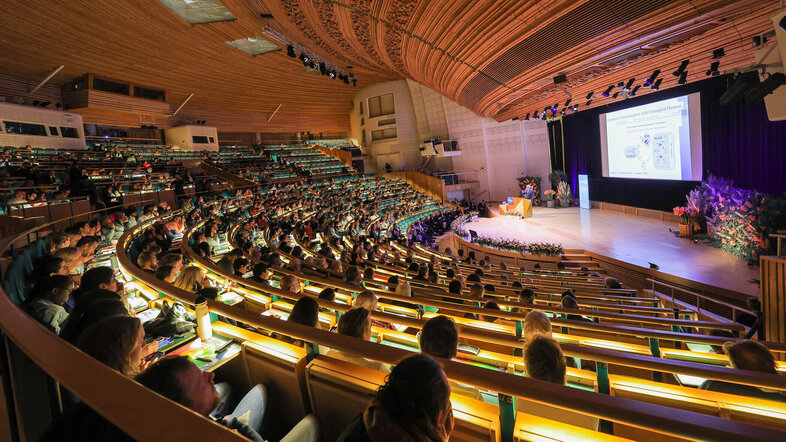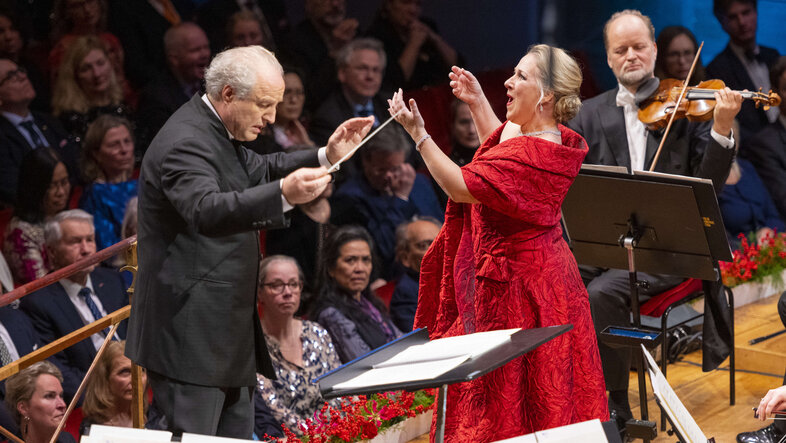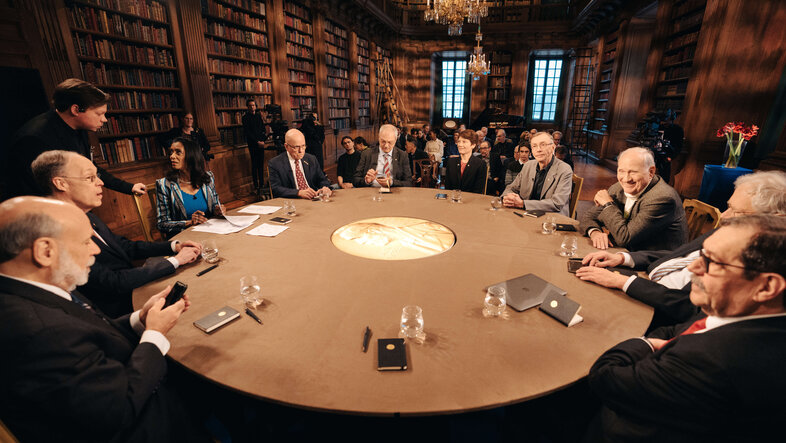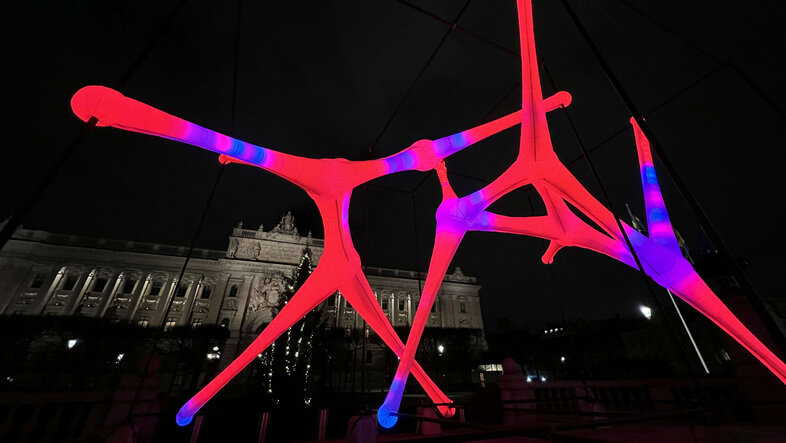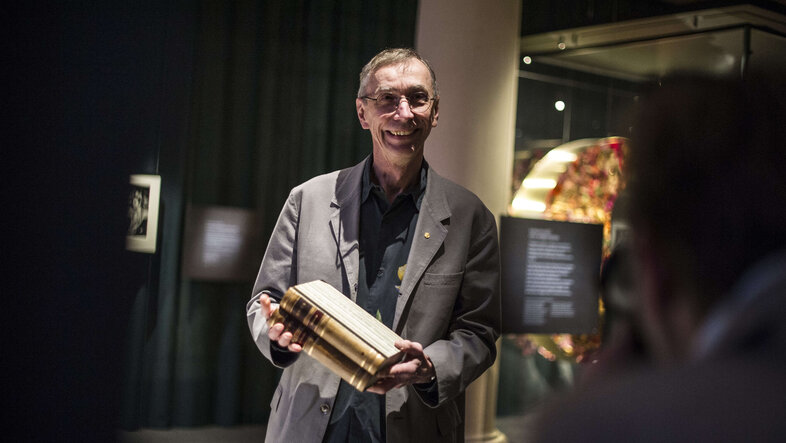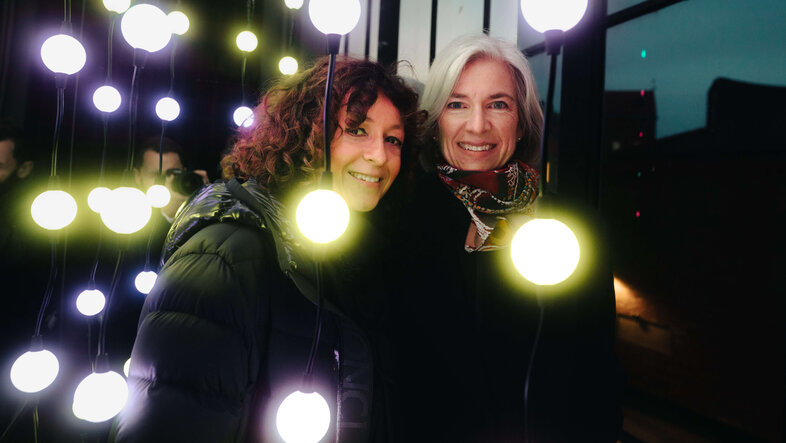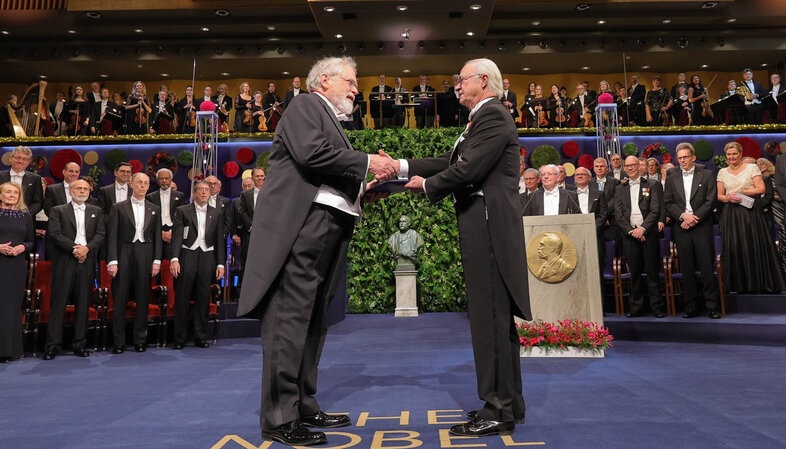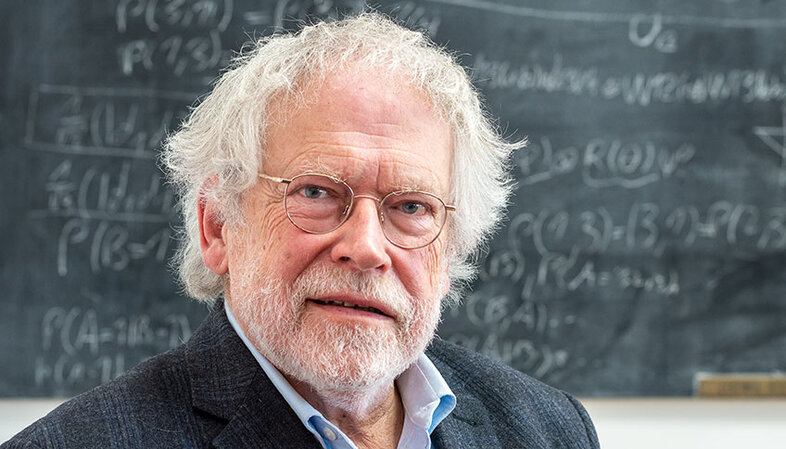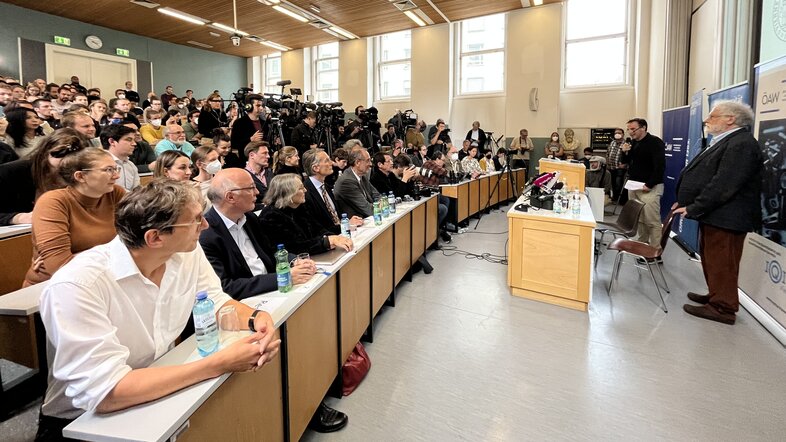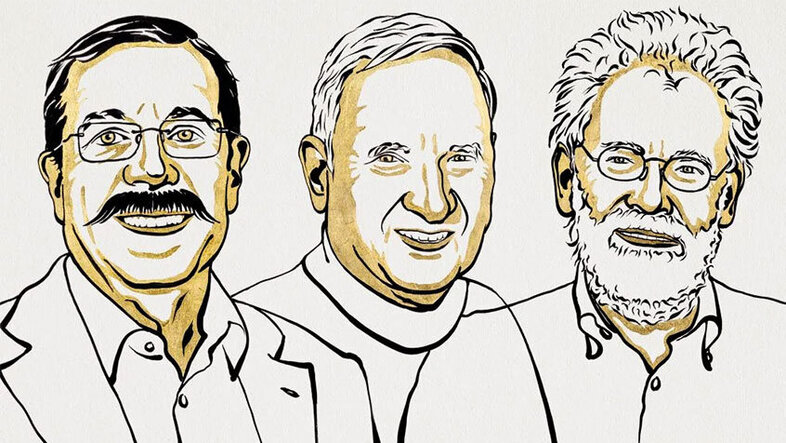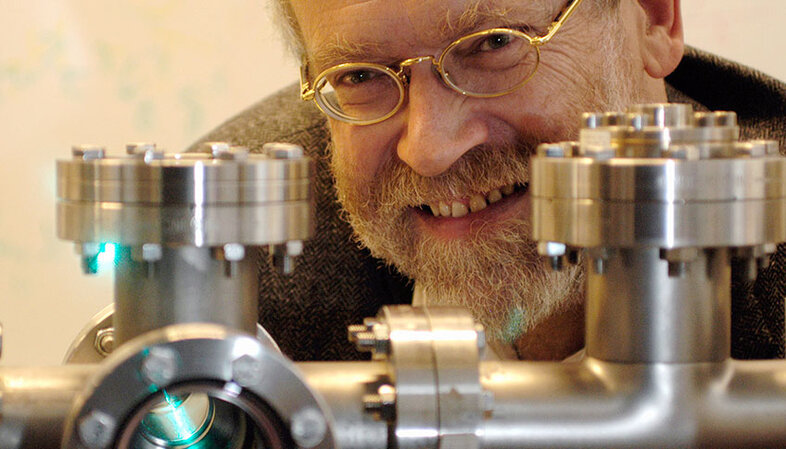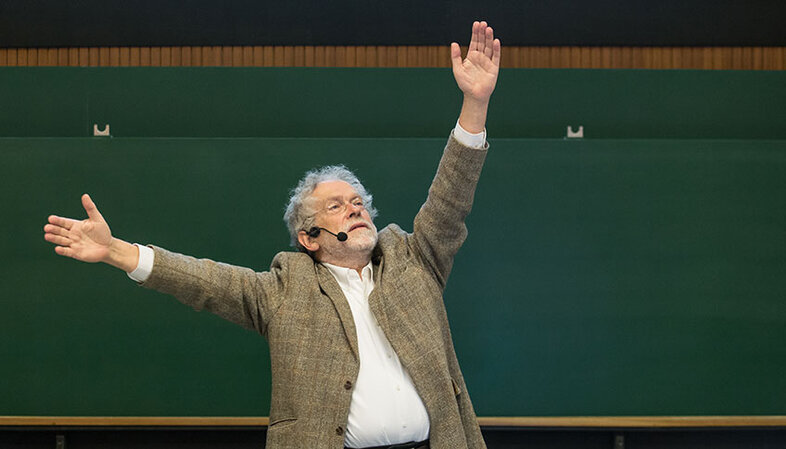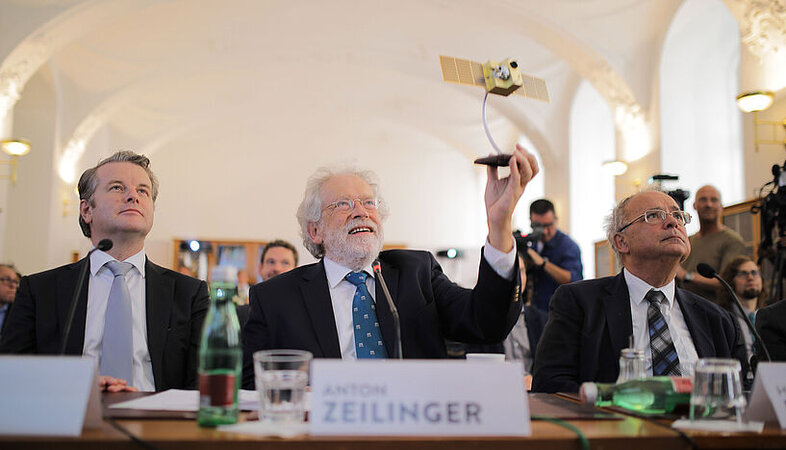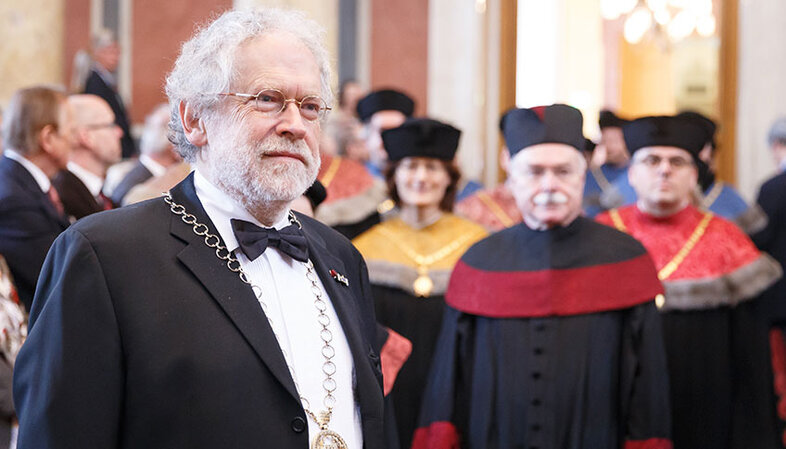Anton Zeilinger: Pioneer of quantum information
Happy Birthday, Anton Zeilinger!
The quantum physicist and Nobel Prize laureate celebrates his 80th birthday on 20 May 2025. The institutions of his distinguished career ‒ The Austrian Academy of Sciences, TU Vienna, the University of Innsbruck, and the University of Vienna ‒ congratulate Anton Zeilinger. From the University of Vienna, Rector Sebastian Schütze highlights: "We congratulate Anton Zeilinger on his milestone birthday. He has made a significant contribution to making Austria one of the world leaders in quantum physics today. We also owe him a great debt of gratitude for his decades-long dedication to basic research and his commitment to science communication, bringing science and research into the broader public sphere – most recently through the remarkable program at the Musikverein. We are very proud of 'our' Nobel laureate and wish him many more years of passionate engagement for his topics and for Austria as a hub of scientific excellence."
Interview with Anton Zeilinger
Prof. Zeilinger, how have things been for you since the announcement of the 2022 Nobel Prize in Physics?
Anton Zeilinger: Things have changed more than I expected. What's really nice is that every few steps on the street I'm briefly spoken to or smiled at by someone, and people are happy. You can see that the Nobel Prize is positive for many people in Austria. On the other hand, it is of course a burden when you can't just walk around.
What were the highlights of the past year for you?
Zeilinger: The Nobel Prize ceremony was the highlight, nothing can top that, that's for sure. But there were other nice things: the University of Innsbruck immediately awarded me an honorary doctorate, I was invited to give a plenary lecture at the annual meeting of the American Physical Society (APS) with 15,000 participants, and the state of Upper Austria awarded me the highest distinction in the country. I was able to invite 120 friends and relatives - a wonderful celebration.
I also remember meeting the US Nobel Prize winner in Chemistry, Barry Sharpless, who has been awarded his second Nobel Prize in 2022. When I asked him what his secret was, he said that he had never applied for research funding.
You said after the Nobel Prize announcement that science remains a big priority and that you want to continue researching. Did you succeed in doing that?
Zeilinger: Not quite as I had hoped, but I will take that up again now. I have to cut back on commitments in order to be able to devote more time to research.
Nobel Prize installation with Emmanuelle Charpentier and Anton Zeilinger
"Wiener Vorlesung" by Anton Zeilinger on 31 May: A journey through the Quantum Wonderland
In his "Wiener Vorlesung" on 31 May 2023, Anton Zeilinger followed up on his Nobel Prize speech given in Stockholm in December by addressing individual topics and aspects, including chance, entanglement and quantum encryption.
Impressions of the Nobel Prize lecture by Anton Zeilinger on 25 January at the University of Vienna
On Wednesday, 25 January 2023, physics Nobel Prize winner Anton Zeilinger took the audience on a journey through the "Quantum Wonderland" at a public lecture in the Audimax of the University of Vienna. Here you can find a review of the Nobel Prize lecture, photographic impressions of the event and voices from the audience (in German).
Impressions from the Nobel week 2022 in Stockholm
The Nobel Prize awarded to Anton Zeilinger is a great personal success and, at the same time, a distinction for the academic location in general. My warmest congratulations to Anton Zeilinger.Sebastian Schütze, Rector of the University of Vienna
Video recording of the Nobel Prize award ceremony on 10 December 2022
Nobel Week 2022: Live from Stockholm!
It is very important not to oversee that there is a future beyond the present future. You need to develop new fundamental experiments, new ideas, to open up possibilities for applications at a later time.Anton Zeilinger at the press conference on 7 December in Stockholm
Video recording of the Nobel Prize lectures in physics on 8 December 2022
"One day, we will have really understood quantum physics ..."
"... which will be even more revolutionary than the achievements of Copernicus and Columbus," predicts the newly awarded Nobel Prize laureate Anton Zeilinger in front of a packed audience in the Ludwig-Boltzmann lecture hall at the University of Vienna. Today, all cameras are focusing on him: Together with his colleagues Alain Aspect and John F. Clauser, the Austrian physicist is going to be awarded the most important academic award for their groundbreaking findings in the field of quantum physics – this was announced by the Royal Swedish Academy of Sciences in Stockholm on 5 October 2022.
The emeritus professor of the University of Vienna had been considered a likely candidate for the coveted award for quite some time, but when he actually received a phone call from Sweden he was still "very surprised", admits the 77-year-old Anton Zeilinger, "But there are so many others." What makes the 'quantum guru' with the bushy beard so special?
From fundamental questions to concrete applications
The Swedish committee declared that his pioneering work in quantum information and his experiments with entangled photons "bridged the gap between fundamental questions about nature and concrete applications". "Quantum physics will only actually be in full use if we no longer have to carry something like this around," Zeilinger counters and holds up his mobile phone. However, his personal focus has always been on basic research: "I can very proudly tell you: This is not good for anything. I only do it out of curiosity." This is what he has always replied to the question of "What is this good for?", Zeilinger tells the audience in the packed Ludwig-Boltzmann lecture hall at the Faculty of Physics of the University of Vienna at the press conference after the announcement of the Nobel Prize laureates.
How it all began…
And Anton Zeilinger has always been driven by curiosity: Already as a child, he used to "disassemble" things into their individual components to understand how they work – putting them back together afterwards was never as interesting, Zeilinger tells us. The exceptional physics talent was born on 20 May 1945 in Ried im Innkreis (Upper Austria) and grew up in a family in which science was valued. One of his teachers at the academic secondary school in Hietzing, Vienna, managed to stir students' enthusiasm for complex relationships: Five of 22 classmates, including Zeilinger, ended up studying physics. Zeilinger studied mathematics and physics at the University of Vienna and was "extremely lucky" that his doctoral supervisor was Helmut Rauch, the Austrian pioneer in the field of quantum optics.
"Crazy" revolutionary ideas
"I do not want to do any mainstream things," Zeilinger told the Austrian Press Agency in 2020. This has been his credo already early on. At the beginning of his career, many issues in the field were still "completely philosophical" and theories about quantum physical states were dismissed as "crazy ideas". But sometimes you need to "trust your intuition and your crazy ideas a bit," Zeilinger can proudly say today.
Video summary of the press conference with Anton Zeilinger (in German)
Around the world
Just like Helmut Reich, Zeilinger initially worked with neutrons, but he soon focused on the investigation of fundamental questions in quantum physics. Following his habilitation at TU Wien and an appointment as research assistant at the Atominstitut Vienna, Zeilinger conducted research all over the world. Among other things, he was young Fulbright Fellow at the renowned M.I.T., where he also met future Nobel Prize laureate Clifford G. Shull.
The career of a distinguished expert
This is where he also began to focus increasingly on the quantum physics phenomenon of entangled photons and, together with his colleagues Daniel Greenberger and Michael Horne, he described the 'GHZ state' (in case you wonder: the name is derived from the initials of the physicists), which refers to the entanglement of three particles. The special thing about it: In contrast to the Bell inequalities, four measurements suffice to show the correctness of the quantum mechanics. It took until the late 1990s until Zeilinger and his colleagues succeeded in conducting the associated experiment – and, with it, in providing proof of the theoretical predictions. To this day, the GHZ experiment is considered one of the most important findings by Zeilinger.
But that was not all: In 1997, Zeilinger succeeded in the first teleportation of light particles, earning him the nickname 'Mr. Beam'. Also in 1997, he gave a demonstration of the encrypted transfer of money via quantum cryptography at Vienna City Hall and held the first secure quantum video conference with his colleague Chunli Bai in China. At the University of Innsbruck, he eventually initiated the experiments with entangled photons for which he will be presented the Nobel Prize in Physics in a ceremony in Stockholm on 10 December 2022.
Following professorship positions in Innsbruck and Munich, he had been Professor of Experimental Physics at the University of Vienna since 1999, and has been Emeritus Professor since 2013. As a result, his talk at the Ludwig-Boltzmann lecture hall of the University of Vienna, which was also broadcast via livestream, was a sort of 'home game': colleagues from the discipline, media representatives and admirers joined the students in the 'fan zone'. The strong interest in his person is probably not entirely new to the darling of the public and Austrian Wissenschafter des Jahres (researcher of the year) in 1996: The list of prestigious prizes Zeilinger received is long and ranges from the Wolf Prize in Physics to the Grand Decoration of Honour in Gold for Services to the Republic of Austria. The highly endowed Nobel Prize is now certainly the culmination of Zeilinger's career.
As in the previous year, this year’s Prize is endowed with ten million Swedish kronor (around 920,000 euros). The 77-year-old quantum expert briefly considers his answer to a question from the audience about his plans for the prize money. Referring to his large family with children and grandchildren: "I'm sure to find someone," he smiles. (hm)
Following professorship positions at the Technical University of Munich and the University of Innsbruck, he had been Professor of Experimental Physics at the University of Vienna since 1999, and has been Emeritus Professor at the University of Vienna since 2013. Furthermore, Anton Zeilinger has been conducting research at the Institute for Quantum Optics and Quantum Information of the Austrian Academy of Sciences since 2004, of which he was also the Director from 2004 to 2013. From 2013 to 2022, Zeilinger served as President of the Austrian Academy of Sciences.
- This article was first published on 7 October 2022 and has been continuously updated.
- Podcast: Nobel Prize Conversation with Anton Zeilinger
- Portraits of the Nobel Laureates on Swedish Television
- The Nobel Prize in Physics 2022
- Announcement of the 2022 Nobel Prize in Physics
- Video summary of the press conference at the University of Vienna with Anton Zeilinger on October 5 2022 (in German)
- Telephone Interview with Anton Zeilinger: "It's probably one of the most beautiful theories ever invented" (Royal Swedish Academy of Sciences)
- Website von Anton Zeilinger at the Resarch Group Quantum Optics, Quantum Nanophysics and Quantum Information at the University of Vienna
- Faculty of Physics
- CV of Anton Zeilinger (ÖAW)
